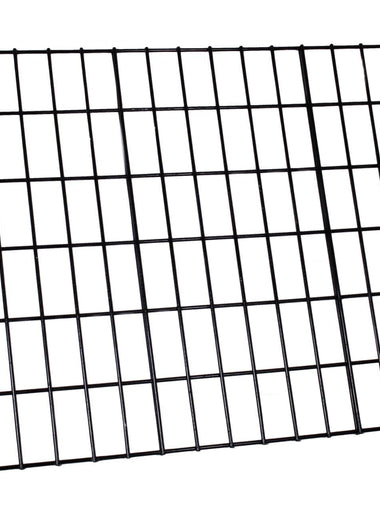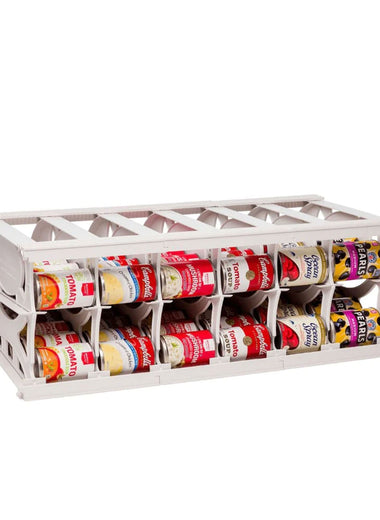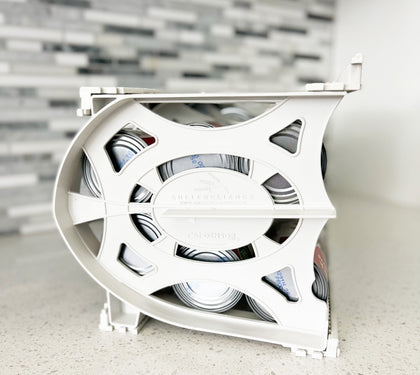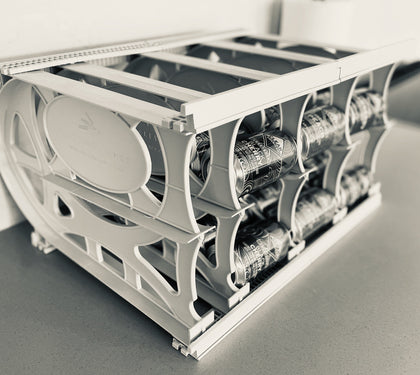When it comes to food storage, one often overlooked but highly valuable resource is canned food. These convenient, long-lasting items have been a staple in households and emergency preparedness kits for decades. In this article, we'll delve into the importance of using canned food for food storage, highlighting its numerous benefits that make it a smart choice for any situation.
1. Extended Shelf Life
Canned food is renowned for its impressive shelf life. When stored in proper conditions, canned goods can remain safe and nutritious for years, even decades. This extended shelf life ensures that you always have a readily available source of sustenance, whether it's for everyday meals or during emergencies. Canned food's durability allows you to build a robust food storage supply that you can rely on over time.
2. Nutritional Value Preservation
One common misconception about canned food is that it lacks nutritional value. In reality, canned fruits, vegetables, proteins, and other food items retain their essential nutrients and vitamins throughout the canning process. The sealing of the can locks in the goodness, making canned food a nutritious choice for your food storage needs. Plus, it eliminates the need for refrigeration or freezing, saving energy and resources.
3. Convenient and Ready-to-Use
Canned food is incredibly convenient. Unlike fresh produce, it doesn't require washing, peeling, or cutting. Canned items are pre-cooked and ready to eat, saving you precious time in the kitchen. This convenience is especially valuable during emergencies or when you need to prepare a quick meal. You can open a can and have a nutritious dish on the table within minutes.
4. Versatility in Meal Planning
Canned food's versatility enhances meal planning and preparation. You can incorporate canned vegetables, beans, or proteins into various recipes, ensuring a diverse and balanced diet. Whether you're making soups, stews, casseroles, or salads, canned ingredients are a reliable addition to your culinary creations. Their long shelf life allows you to keep a wide range of options on hand.
5. Cost-Effective Solution
Canned food offers an economical way to stock up on essential ingredients. Buying in bulk and taking advantage of sales can save you money in the long run. Furthermore, canned goods reduce food waste since they have a longer shelf life, reducing the likelihood of items spoiling before you can use them. This cost-effective approach benefits your household budget and the environment.
6. Essential for Emergency Preparedness
In times of natural disasters, power outages, or unexpected emergencies, having a stockpile of canned food can be a lifesaver. These non-perishable items don't require refrigeration or cooking, making them ideal for situations where resources are limited. A well-prepared food storage pantry can provide comfort and security during challenging times.
7. Reduces Dependence on Fresh Produce
Depending solely on fresh produce can be impractical and unreliable, especially in regions with seasonal changes or during disruptions in the food supply chain. Canned food complements fresh ingredients and ensures a consistent food source year-round. It serves as a reliable backup when access to fresh produce is limited.
In conclusion, the importance of using canned food for food storage cannot be overstated. Its extended shelf life, nutritional value preservation, convenience, versatility, cost-effectiveness, and role in emergency preparedness make it an invaluable resource. By incorporating canned food into your food storage plan, you not only ensure the well-being of your family in various situations but also contribute to a more sustainable and resilient lifestyle. So, stock up on canned goods, and you'll have a reliable source of nourishment whenever you need it.














